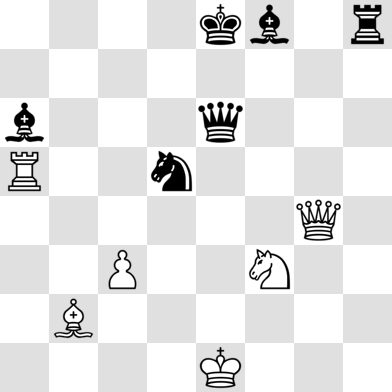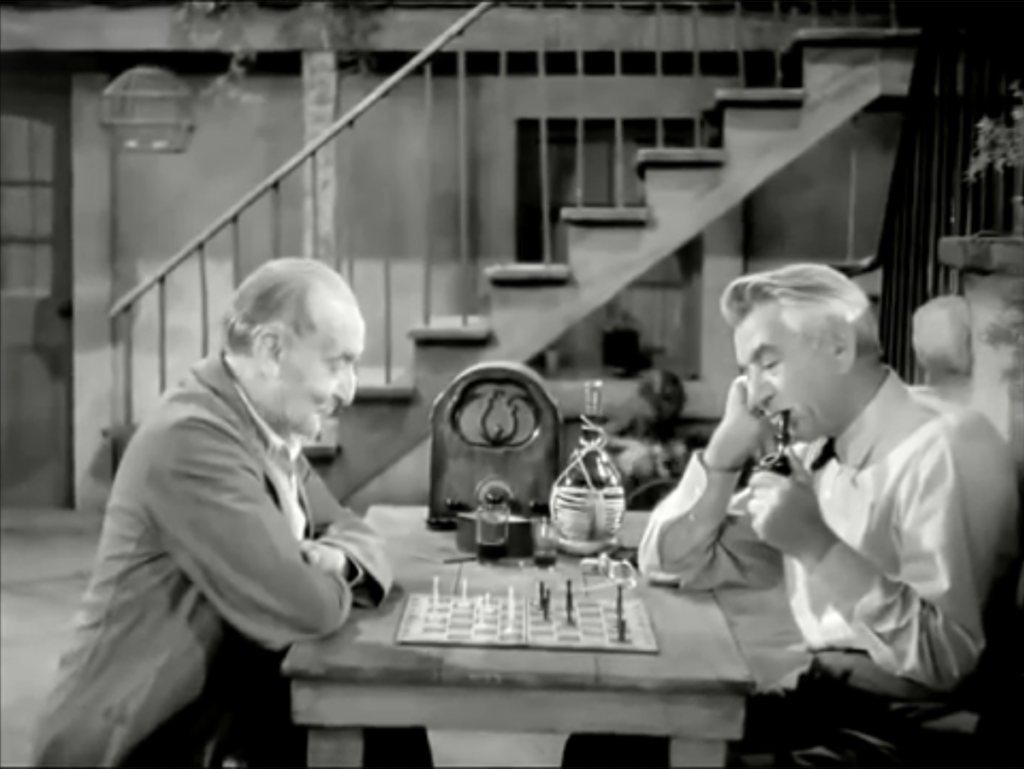Today, we dissect the greatest of the great, because The great dictator is probably the greatest movie by the greatest silent movie actor: Charles Chaplin. But it is a very atypical one: it is one of the latest, being released in 1940 only, and it is not a silent movie at all. I think the plot is so well-known that an introduction is not necessary. Some scenes, like the dictator dancing with the globe and Chaplin’s speech at the end, have entered the canon of Western culture. One lesser known scene occurring about halfway through the movie, has two older Jewish gentlemen enjoying a nice game of chess:
It is quite a peaceful scene,1 because the persecution of the Jews has stopped — temporarily, unfortunately. After a decent rendition of Brahms’ fifth Hungarian dance, the radio program has stopped, but the board and pieces are still there. That’s a bit of a miracle, because even in 1940 these were really old fashioned pieces.
We do get a really nice view of their positions, so with pretty much perfect certainty, I can present you the diagram:2
 Oh, before I forget: h1 is a white square! Yay! Bonus points! Which are immediately taken away! Because apparently it’s black’s move! And he plays Bb5! Gah!
Oh, before I forget: h1 is a white square! Yay! Bonus points! Which are immediately taken away! Because apparently it’s black’s move! And he plays Bb5! Gah!
What happened to these poor men’s brains? Have they disintegrated? Is this the result of year-long persecution? Do you see what you have done, Hynkel? Do you see? Do you see?!
Realism: 0/5 Obviously, white being in check and it being black’s move suffices for a big fat zero. But even without that it would not score highly. Somehow, the pawns seems to have disappeared en masse, but the two kings, one bishop, and one rook are still on home base. The one pawn white has left, he has carefully placed right in front of his bishop so as to make it as stupid as possible. And the mutual attack of unprotected queens is ridiculous, too.
Probable winner: White can pick up a queen for free with check. Usually that’s enough to win and this is no exception.
1. [Even a quiet, peaceful scene.]↩
2. [It could have been a piece-full scene, but alas, it was not to be.]↩
